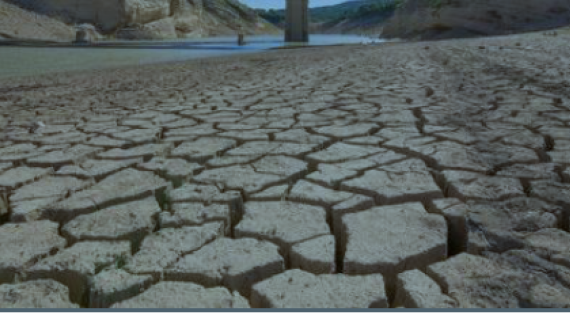What is Hydro-JULES?
Hydro-JULES is a research programme, funded by the UK’s Natural Environment Research Council, to bring together a wide community of modellers, hydrologists and meteorologists to share data, approaches and analysis methods to inform a new generation of hydrological models.
Who is it for?
Hydro-JULES provides integrated modelling capability for the UK research and academic community in hydrology and land-surface science. It enables researchers to collaborate more effectively on hydrological problems which link the atmosphere, land-surface, groundwater, cryosphere and oceans.
Is it a model, a framework, or a platform?
The Hydro-JULES framework allows components of the Earth system to be coupled together to model the water cycle. Sub-components can be contributed as modules so that other models will be able to link to them. Where appropriate, some modules are linked to JULES (the Joint UK Land Environment Simulator), which is the UK’s land-surface model used in weather forecasting and climate research.
How do the components link together?
The modular components of Hydro-JULES will be linked using carefully documented interfaces which describe the inputs, outputs and expected behaviour of each module. When used outside of the JULES system, Hydro-JULES modules will be exposed to the end-user via an interface providing the ability to link modules together with high-level research computing tools such as Python.
How can I find out more?
The best way to remain updated is to join the Hydro-JULES mailing list. If you have a specific question please email hydrojules@ceh.ac.uk.
How do I get involved?
There are many opportunities for those in the research and academic community to get involved – through working groups (hydrojules@ceh.ac.uk), researcher exchanges and student projects. Please join the mailing list or subscribe to our twitter feed @Hydro-JULES to stay in touch and be informed of forthcoming opportunities.
Why does the UK need Hydro-JULES?
Hydro-JULES is designed to provide part of the UK’s National Capability in environmental science. As such, it will provide the underpinning technical capability to link hydrological models and will enable collaborative work across the hydrological and land-surface modelling community.
Is Hydro-JULES designed to be used in the UK only or overseas too?
Hydro-JULES is funded by the UK public purse and so initial priority will be given to applications in the UK. A global modelling capability is essential to integrate with Earth system modelling applications, though, and overseas regional applications are encouraged.
What spatial resolution will the model offer?
In the first instance, we target a 1 km implementation over the UK and a 25 km implementation globally. The process representations in the model are not explicitly tied to particular spatial or temporal resolutions and so different resolutions and domains will be possible in the future.
How will I run Hydro-JULES?
A user-supported configuration of the model will be available via the JASMIN research computing platform. Full training is provided via the Hydro-JULES Schools.
How does Hydro-JULES compare with other similar international modelling activities?
The challenge to create a coupled model of the hydrological cycle to be combined with atmospheric and ocean models is being tackled in a number of modelling centres around the world. The review here is a useful summary of these initiatives: Clark et al. (2015). Hydro-JULES will participate in major international model benchmarking and intercomparison exercises.
What programming language will Hydro-JULES use?
In cases where code is shared or intended for use with JULES the language used will be FORTRAN90. For each interoperable Hydro-JULES module a Python wrapper will be produced to permit alternative workflows to be defined in Python.
What computers will be able to run Hydro-JULES?
Hydro-JULES will be available in supported configurations on the JASMIN research computing platform. Advanced users and developers will be able to download the source code via a code repository to compile and run on their own machines.
Is Hydro-JULES open source?
Yes, Hydro-JULES components and the framework are openly developed and released under the BSD-3 licence which makes them open source and freely available for any use.
Who funds Hydro-JULES?
Hydro-JULES is funded by the Natural Environment Research Council, part of UKRI, which is owned by the Ministry of Business, Energy and Industrial Strategy.
Who is delivering the programme?
Hydro-JULES is delivered by three NERC research institutes, the UK Centre for Ecology & Hydrology (UKCEH), the British Geological Survey (BGS), and the National Centre for Atmospheric Sciences (NCAS), and the National Centre for Earth Observation (NCEO).
Will there be training courses and events?
Yes, so far we have provided training to over 120 graduates from over 40 countries
Can I sign up to a newsletter?
Yes, the newsletter is to be produced twice a year and can be found here http://eepurl.com/dAYcQX.
